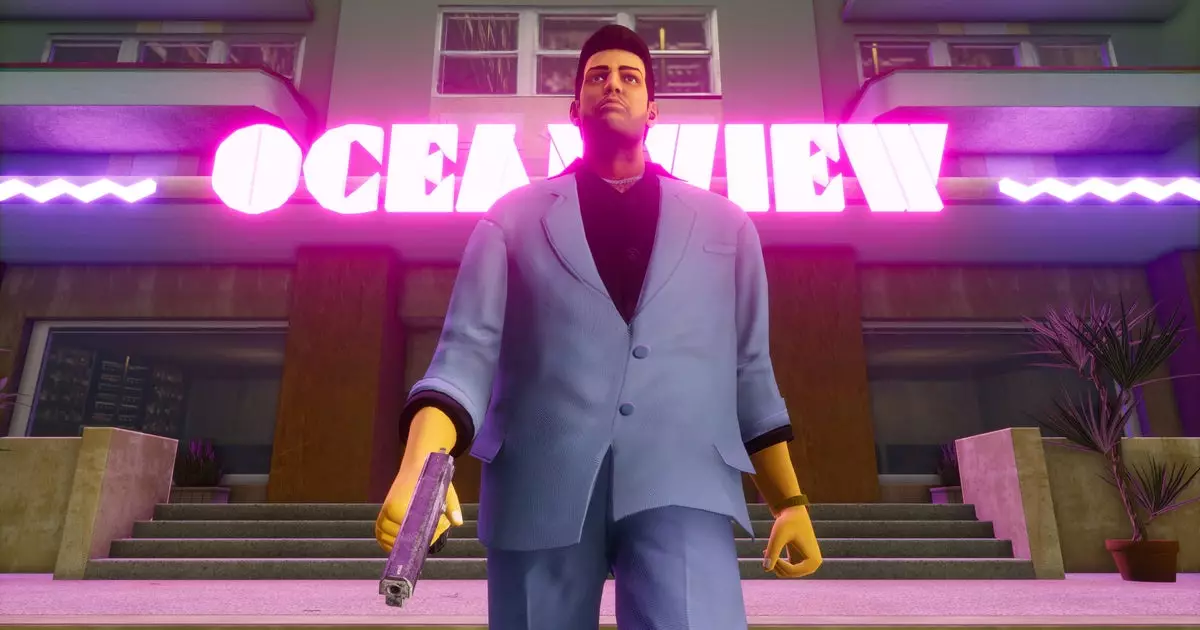For many gamers, the Grand Theft Auto (GTA) series represents more than just a collection of video games; it embodies a cultural phenomenon entwined with cherished memories. My fondest recollection springs from a particularly hilarious afternoon spent with a friend, witnessing the chaotic antics that governed the world of GTA 3. I remember bursting into laughter as my friend maliciously swung a wooden baseball bat at a fallen police officer, a reflection of the series’ cheeky and carefree approach to lawlessness. These moments resonate deeply; they speak to a time when sandbox gaming was revolutionary, offering players unbounded freedom and outrageous scenarios that felt incredibly liberating.
Yet, as enjoyable as these recollections may be, the truth is that revisiting those earlier titles has become increasingly difficult due to their lackluster remasters, particularly highlighted by the disappointing reception of “Grand Theft Auto: The Trilogy – The Definitive Edition.” There’s a sense of resentment among longtime fans, not just for the underwhelming updates but for the very naming convention of the games, which feels clunky and unnecessarily complicated. This brings to light a significant issue: how nostalgia can be overshadowed by the disappointing realities of poorly executed remakes.
The Rise and Fall of Remastering
The recent updates provided by Rockstar seem to barely scratch the surface of what long-time players hoped for. A notable feature, “Classic Lightning,” was introduced last year during the mobile release of the Definitive Edition games, offering a nostalgic twist by restoring the atmosphere of the early titles. However, does a mere visual update justify the investment of time and energy into revisiting these classics? The mere existence of an option to toggle graphics does not equate to the immersive experiences that the originals provided.
Adding to the frustration, fans have observed that the remastering team, Grove Street Games, has been seemingly erased from the credits splash screen in the new updates. Such a move feels petty and diminishes the hard work that went into these versions, regardless of quality. Take-Two Interactive, the parent company of Rockstar, appears to take a notably harsh stance towards scrutiny, showcasing a pattern of prioritizing brand reputation over fan loyalty and appreciation.
The Future of Grand Theft Auto
On a brighter note, there is palpable excitement surrounding the future of the GTA franchise. With the announcement of a potential release window targeting Fall 2025, anticipation is building. This suggested timeline is a hopeful beacon for many who have been yearning for the next expansive chapter in the series. Yet, it’s essential to remember that high confidence doesn’t always equate to high quality. Many fans are cautiously optimistic, advocating for a return to the storytelling and gameplay dynamics that made the original games so compelling.
While revisiting the earliest iterations of Grand Theft Auto elicits a wave of nostalgia, the recent efforts to revitalize these classics have been met with mixed results. The series stands at a crossroads: balancing the memories formed during chaotic escapades against the industry’s evolving standards. As we wait for what the future holds, we’re reminded that the essence of gaming lies not just in its evolution but in the experiences and memories that come along the way.

